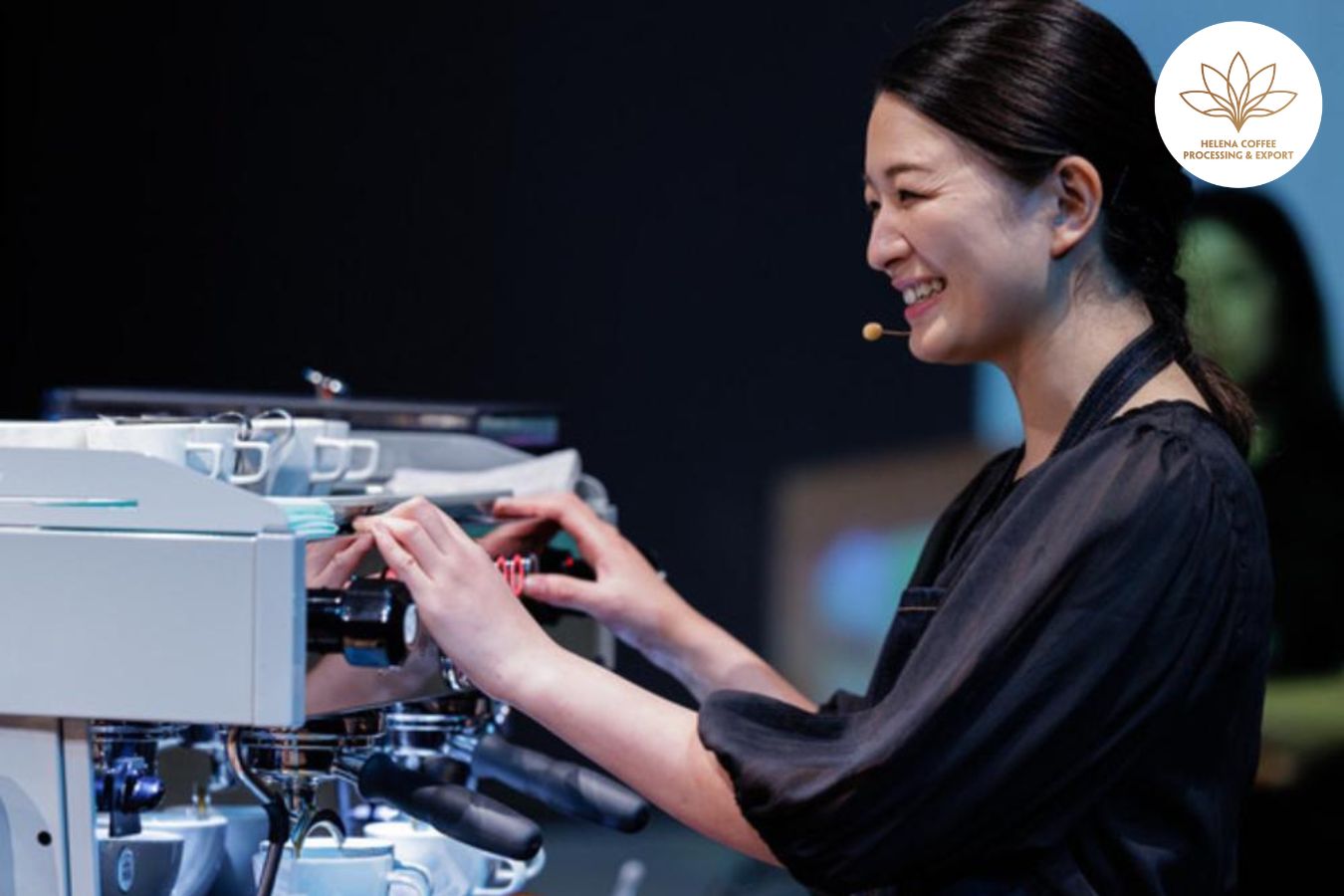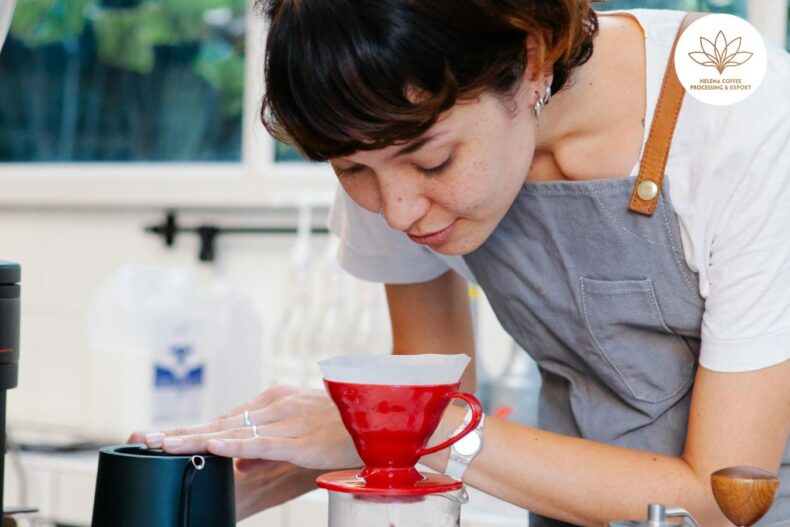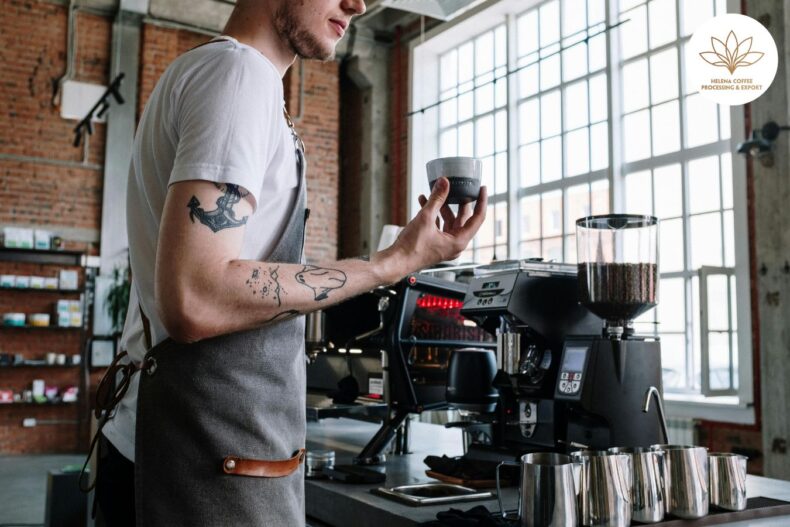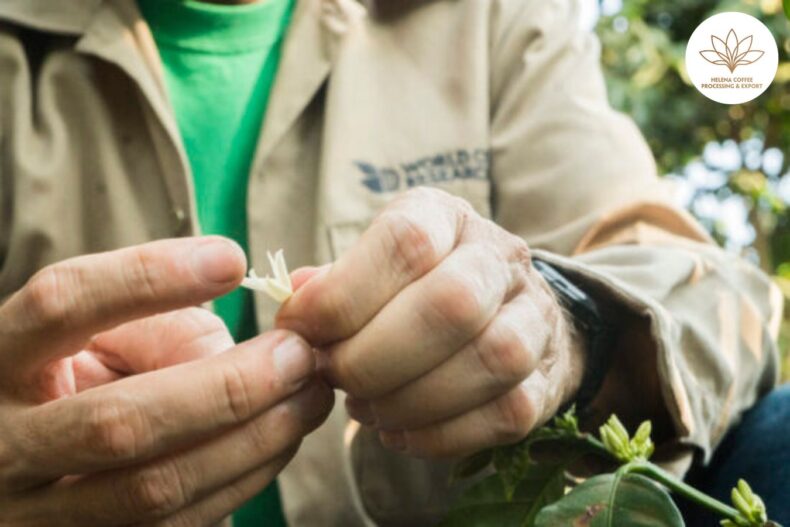
Even though the memories of the 2023 World Barista Championship are still fresh, anticipation is already building for next year’s event. Slated to take place from May 1 to May 4, 2024, the prestigious competition will be hosted during the inaugural World of Coffee Asia event in Busan, South Korea.
As with each iteration of the championship, we can predict certain elements that will surely be present. Participants will undoubtedly present exceptional coffees, demonstrating not only their skill but also their innovative spirit and creative flair.
However, this year brings an additional layer of intrigue with the Specialty Coffee Association’s announcement of updated rules and regulations for the 2024 World Barista Championship.
The updates primarily refine the language used to describe judging protocols, conflict of interest policies, and guidelines for the milk beverage category. Notably, the assessment criteria for the tactile qualities of espresso have also been revised, signaling a potential shift in how competitors approach this aspect of their presentations.
To delve deeper into how these changes might influence the competition, and to uncover other potential trends for next year’s championship, I engaged in conversations with Daniele Ricci, the 2023 WBC runner-up, and Anthony Douglas, the 2022 World Barista Champion. Their insights offer a glimpse into the evolving landscape of barista competitions and the ever-growing complexity of coffee craftsmanship.
Reconsidering past adjustments in the world barista championship regulations
In a bold move that reshaped the competitive landscape of the 2023 World Barista Championship (WBC), organizers introduced a series of groundbreaking rule changes, marking some of the most significant updates in the competition’s history. Among these, the allowance of “commercially-available animal and plant-based milks” for use in the milk beverage category stood out as a particularly transformative shift. This change broke from the longstanding tradition of exclusively using cow’s milk, eliminating the risk of scoring zero in the milk beverage round for those opting for alternative milks.
Further tightening the criteria, competitors were prohibited from adding any extra ingredients to the milk used in the milk beverage course. Deviating from this rule would result in a complete forfeiture of points in the “Taste Experience” category, emphasizing the competition’s focus on the pure interaction between milk and coffee.
Adjustments were also made to the technical aspects of coffee preparation. Specifically, the permissible range for brewing temperature was set between 90.5°C and 96°C (195°F and 205°F), granting competitors the freedom to also customize individual group head temperatures to their preference. This nuanced control over temperature reflects a deeper understanding and appreciation of coffee brewing science.
The scoring system underwent a comprehensive overhaul, aligning with the Specialty Coffee Association’s (SCA) new Coffee Value Assessment. This introduced a diverse scoring matrix that includes a binary yes/no score for the Evaluation Scales stage, a numeric score ranging from 0 to 3 for both “accuracy” and “impression,” and a more extensive 0 to 6 score for “experience.”
In a notable update to the espresso segment, judges now focus on the aftertaste as a key component of the “Taste Experience” category, moving away from the tactile descriptors previously assessed. Competitors are required to provide detailed descriptions of their espresso’s thickness and texture, which are critically evaluated by the judges.
Beyond the mastery of technical skills, the WBC now places a significant emphasis on creativity and originality, evaluating competitors on the uniqueness of their routine and concept. This broader perspective for judging not only celebrates technical excellence but also innovation and personal expression, enriching the competition’s overall impact and appeal.
Diving into the freshly unveiled 2024 world barista championship rules and regulations: what you need to know
Building on the transformative changes introduced in the 2023 World Barista Championship (WBC), the next edition promises to captivate with its novelty. This anticipation has been further fueled by the Specialty Coffee Association’s recent unveiling of the 2024 rules and regulations, setting the stage for an even more dynamic competition.
Anthony Douglas, the esteemed Head of Research and Development at Axil Coffee Roasters in Melbourne and the 2022 WBC victor, shares his excitement for the forthcoming guidelines. “The new regulations for the 2024 WBC in Busan herald a forward-thinking era,” he remarks. “These adjustments are poised to enhance the competition by promoting a deeper exploration into the nuances and intricate details of coffee flavors, alongside placing a greater emphasis on the skills of baristas in fine-tuning their coffee presentations.”
Milk beverage version 3.2
The most significant update centers on the rules for the milk beverage category, introducing a clarification that, while not altering existing methods, introduces subtleties participants need to understand:
“The guidelines now permit the use of any commercially available, unflavored milk. This includes all varieties of plain plant-based and animal milks, whether sweetened or unsweetened. Participants are allowed to mix and match these milks, as long as each type is commercially available and used according to its preparation instructions.
This means milk powders are also acceptable if they are prepared following package directions. However, no additional substances may be added to any milk, with the sole exception of methods like freeze-distillation to remove elements, provided no extra ingredients are used in the distillation process.”
A key insight from this revision is the potential for a rise in the use of mixed milk varieties, including combinations of plant and animal milks. This approach would mirror the innovative strategies of some 2023 World Barista Championship (WBC) contenders, such as finalist Patrik Rolf, who crafted a drink with 90% cow’s milk and 10% coconut milk, and semi-finalist Benjamin Put, who favored a mix with 40% oat milk.
“Tactile Sensations: Unveiling the Nuances of 15.1.15”
In alignment with a modification introduced in 2023, the evaluation of lingering mouthfeel by judges has been refined to differ from the assessment of aftertaste. The new guideline stipulates:
“Evaluations will now include the tactile sensation remaining once the coffee is consumed, focusing on attributes such as astringency or silkiness in the Tactile Experience category.”
This adjustment acknowledges the distinct nature of mouthfeel from aftertaste, making the rule change seem well-founded. Moreover, it could streamline the judging process to some extent.
Espresso 3.1
For the 2024 event, an intriguing modification in the rules notably addresses the use of infused or flavored coffees:
“The definition of coffee encompasses the roasted output from the seeds of the Coffea plant’s fruit. In this competition’s context, the rule prohibits the addition of any substances to the coffee once it has been processed to the ‘green coffee’ phase. This refers to the seeds of the Coffea species, which have been dried following the post-harvest procedure and stripped of all external fruit layers. The ban extends to the application of fragrances, flavors, liquids, powders, or any similar additives.”
Although the Specialty Coffee Association (SCA) has reiterated that this rule revision aims for greater precision, its inclusion might come as a surprise.
Essentially, this regulation prevents participants from using any coffee that has been infused or flavored after its initial drying process. However, ingredients added before the drying stage of the coffee are permissible.
How might the new regulations impact next year’s competition?
Considering the updated regulations for the 2023-24 period, several insights emerge about potential trends in Busan.
Predominantly, the anticipation is for an uptick in competitors incorporating plant-based milks into their presentations. While it’s unlikely that baristas will shift entirely to a plant-based approach, the expectation is that many will feature at least one variety of plant milk—oat milk being a prime candidate—in their milk-based or signature beverages.
Anthony shares, “The expanded flexibility within the milk beverage category now more closely mirrors the guidelines for signature drinks, enabling competitors to experiment with various milks and blending ratios to enhance specific characteristics of their coffee. This approach fosters innovation and personalization in crafting unique and captivating experiences.” The 2023 World Barista Championship (WBC) in Greece showcased glimpses of this trend, with projections of heightened creative exploration in Busan.
Furthermore, adjustments in the regulations concerning additives and green coffee aim to motivate competitors towards greater openness and experimentation, especially for those incorporating infused or flavored coffees into their routines. This shift could potentially elevate the championship’s standards.
Daniele Ricci, 2023 WBC runner-up and head barista at MAME Specialty Coffee in Zürich, Switzerland, reflects, “We’re poised to witness an increased use of plant-based milks among competitors, coupled with more profound innovation and understanding related to infused coffees and novel fermentation techniques.” This encapsulates a forward-looking perspective on the evolving dynamics of the competition.
Emerging trends to keep an eye on
Undoubtedly, the World Barista Championship (WBC) stage is renowned for showcasing exceptional coffee varieties and species, such as Gesha, Sidra, and Eugenioides, among others. The prevalence of Colombian coffees among the 2023 WBC finalists suggests a potential continuation of this trend.
Daniele shares insights predicting the dominion of Panamanian and Colombian coffees in future competitions, with a sprinkling of beans from new origin countries. However, he anticipates a scarcity of pure natural and washed coffees in the upcoming competition’s advanced stages.
The notable absence of female competitors in the 2023 event underscores the need for increased diversity at this global coffee forum.
A participant engages in the prestigious World Barista Championship coffee contest. The 2024 Championship is scheduled from May 1st to 4th at the World of Coffee Asia event’s debut in Busan, South Korea.
While the outcome remains uncertain at this juncture, the introduction of new rules offers a glimpse into the evolving nature of the competition.
Anthony sums up, “The latest modifications enhance creative freedom and enable baristas to more vividly demonstrate their skills and uniqueness on the international platform.“
FAQs:


